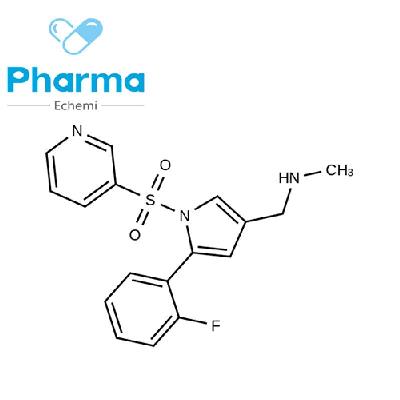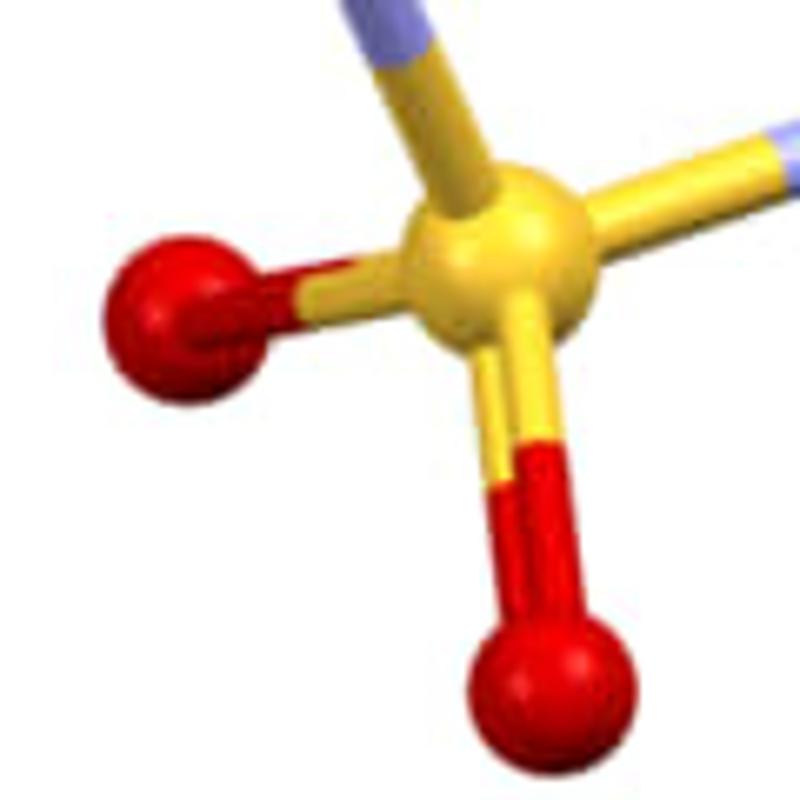-
Categories
-
Pharmaceutical Intermediates
-
Active Pharmaceutical Ingredients
-
Food Additives
- Industrial Coatings
- Agrochemicals
- Dyes and Pigments
- Surfactant
- Flavors and Fragrances
- Chemical Reagents
- Catalyst and Auxiliary
- Natural Products
- Inorganic Chemistry
-
Organic Chemistry
-
Biochemical Engineering
- Analytical Chemistry
-
Cosmetic Ingredient
- Water Treatment Chemical
-
Pharmaceutical Intermediates
Promotion
ECHEMI Mall
Wholesale
Weekly Price
Exhibition
News
-
Trade Service
Helicobacter pylori infection is an infectious disease with a global infection rate of up to 50%.
The 2022 Guidelines for the Treatment of Helicobacter Pylori Infection in China is an update of the expert consensus opinion on the management of H.
pylori infection released in 2018, and a total of 12 recommendations
for the treatment of Helicobacter pylori infection have been formed.
01
Should bismuth quadruple regimen be used as a treatment regimen for primary and re-eradication of H.
pylori infection?
Recommendations: It is recommended to use a bismuth quadruple regimen for primary and re-eradication therapy for H.
pylori infection for 14 days (strongly recommended, moderate-quality).
In addition to proton pump inhibitors (PPIs) and bismuth, the recommended antibiotic combinations are shown in Table 3 (strongly recommended, moderate-quality).
Implementation recommendations:(1) Tetracycline and metronidazole bismuth quadruple regimen can cause significant adverse reactions in some patients, and it is recommended to communicate
fully with patients before use 。 (2) In areas where clarithromycin, levofloxacin and metronidazole are multi-resistant, or patients with a history of prior drug use of macrolides, quinolones and nitroimidazole antibiotics, when it is speculated that there may be a situation that is difficult to eradicate, a bismuth quadruple regimen containing furazolidone can be used as appropriate, and the recommended antibiotic combination includes amoxicillin 1.
0 g, 2 times / d combined with furazolidone 100 mg, 2 times / day; Tetracycline 500 mg, 3~4 times / d combined with furazolidone 100 mg, 2 times / d
.
02
Should primary and re-eradication therapy for H.
pylori infection recommend a high-dose dual regimen or a bismuth quadruple regimen?
Recommendations: Both bismuth quadruple regimens and high-dose duplex regimens can be used for primary and re-eradication therapy for H.
pylori infection (weak recommendation, low quality).
03
Is double-dose PPI eradication recommended for H.
pylori infection in bismuth quadruple regimens?
Recommendation: Routine use of double-dose PPI eradication for H.
pylori infection (weak recommendation, moderate certainty)
is not recommended in bismuth quadruple regimens.
Implementation recommendations: When cytochrome P450 (CYP)2C19 gene testing confirms PPI as a fast metabolite, double-dose PPI
may be considered in bismuth quadruple regimens.
About 40% of Chinese are fast-metabolized with PPIs, and these patients could theoretically benefit
from intensive acid suppressive therapy.
04
Is a bismuth quadruple regimen containing potassium-based competitive acid blocker (P-CAB) recommended over a PPI-containing bismuth quadruple?
Recommendations: PPI-containing bismuth quadruple regimens and P-CAB-containing bismuth quadruple regimens are recommended as primary and re-eradication regimens for H.
pylori infection (weak recommendation, low-quality).
Implementation recommendations: When using bismuth quadruple eradication for H.
pylori infection, the use of PPI is described in Table 3 "Note"; The usage of P-CAB is vonoraxen 20 mg twice daily
.
05
When H.
pylori infection is empirical, is it recommended to adjust the eradication regimen based on antibiotic history?
Recommendations: In empiric treatment of H.
pylori infection, it is recommended that the primary and re-eradication regimen of H.
pylori infection be adjusted based on antibiotic history (strongly recommended, moderate-certainty).
Implementation recommendations: Antibiotic history information obtained through patient recall may not be reliable, and written or electronic medical records
of patients should be obtained whenever possible.
06
In people with H.
pylori infection, is an individualized eradication regimen guided by antibiotic susceptibility testing (AST) recommended over empiric eradication therapy?
Recommendations: Routine AST (weak recommendation, moderate quality) in primary eradication therapy is not recommended, but AST
in remedial therapy is encouraged.
07
Is combination with traditional Chinese medicine recommended in the dual bismuth regimen for primary and re-eradication treatment of H.
pylori infection?
Recommendations: It is recommended that bismuth quadruple regimen be considered in combination with certain traditional Chinese medicine treatment (conditional recommendation, low quality) in the following situations:(1) empirical treatment should be implemented in areas with low eradication rates of bismuth quadruple regimen; (2) The patient has refractory H.
pylori infection
.
In addition, when bismuth is allergic or unavailable and there are obvious adverse reactions, some Chinese medicines may be considered as alternatives to bismuth in the bismuth quadruple regimen
.
Implementation suggestions: The addition of the following traditional Chinese medicines to the bismuth quadruple regimen may increase the eradication rate, and after treatment, Jinghua Gastrokang Gel Pills (160 mg, 3 times/d or 240 mg, 2 times/d, the course of treatment is 3~4 weeks) or Banxia Laxin Soup, or Chinese medicine formulas with rhubarb, huanglian and scutellaria baicalensis as the main ingredients
.
The use of these agents instead of bismuth can achieve eradication rates
similar to those of bismuth quadruple regimens.
08
Is combined probiotic therapy recommended in the dual bismuth regimen for primary and re-eradication of H.
pylori infection?
Recommendations: In patients with intestinal microbiome instability, it is recommended to use bismuth quadruple regimen in combination with probiotics in the primary and re-eradication therapy of H.
pylori infection (conditionally recommended, moderate quality).
Implementation recommendations: Probiotics can be used in patients with intestinal microbiome instability, such as functional diarrhea, diarrhea-type irritable bowel syndrome, and long-term antibiotic use
, regardless of cost and protocol complexity.
The guideline development group (GDG) recommends taking mixed strains containing lactobacillus for at least 2 weeks
before and during eradication therapy.
09
In H.
pylori infected patients, is triple regimen plus probiotic therapy recommended relative to bismuth quadruple regimen?
Recommendation: In primary and re-eradication therapy for H.
pylori infection, the available research evidence does not support but does not oppose triple regimen plus probiotic therapy (no recommendation, very low certainty).
10
Is triple plus gastric mucosal protector recommended for primary and re-eradication therapy for H.
pylori infection compared to bismuth quadruple regimen?
Recommendations: Triple regimen in combination with gastric mucosal protectors is not recommended in primary and re-eradication therapy for H.
pylori infection (weak recommendation, expert consensus).
11
What treatment regimen is recommended in eradication therapy for refractory H.
pylori infection?
Recommendations: For refractory H.
pylori infection, it is recommended to (1) empiric eradication therapy with a bismuth quadruple regimen, with the exception of PPI and bismuth, the combination of antibiotics shown in Table 4 is recommended; and (2) bacterial culture and AST-guided individualized therapy where available (weak recommendation, expert consensus).
Implementation recommendations:(1) except for clarithromycin and levofloxacin, there is a lack of good consistency in phenotypic resistance and gene resistance of other antibiotics; Most of the refractory H.
pylori infections in China have been resistant to clarithromycin and levofloxacin, so the value of resistance gene testing in patients with refractory H.
pylori infection is limited
.
(2) Taking into account local clinical characteristics (e.
g.
, drug resistance, clinical drug accessibility, etc.
), GDG recommends the antibiotic combinations and doses in Table 4 when empirically applying bismuth quadruple regimens, and avoids repeated use of previously used antibiotics
as much as possible.
(3) For PPI fast metabolism, consider increasing the dose of PPI or replacing PPI
with P-CAB.
(4) Rifabutin-containing eradication regimens are not recommended because it is likely to further exacerbate the drug resistance situation of tuberculosis, and there is still a lack of research evidence
in China.
(5) In patients with refractory H.
pylori infection, the application experience of semi-synthetic tetracycline (such as minocycline) is limited
.
12
What eradication regimen is recommended in patients with H.
pylori infection with penicillin-allergy?
Recommendations: For penicillin-allergic H.
pylori infected patients, a quadruple regimen of bismuth containing tetracycline and metronidazole, or a quadruple regimen of bismuth with cefuroxime instead of amoxicillin (Table 5)
is recommended.
A bismuth quadruple regimen of clarithromycin, levofloxacin, and metronidazole is recommended with a full dose (1 600 mg/day) metronidazole (weak recommendation, expert consensus).
Implementation recommendations: It is recommended that individualized diagnosis and treatment based on drug resistance gene mutation detection or bacterial culture combined with AST be considered for eradication therapy in penicillin-allergic H.
pylori infected patients when available
.
The above content is excerpted from: Helicobacter pylori group, Chinese Society of Gastroenterology.
2022 Guidelines for the treatment of Helicobacter pylori infection in China [J] .
Chinese Journal of Digestion, 2022, 42(11) : 745-756.
>>> click directly to read: 2022 Chinese Helicobacter pylori infection treatment guide







